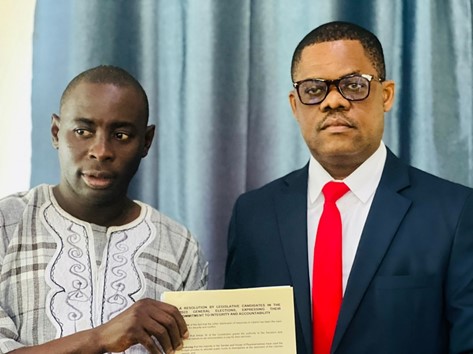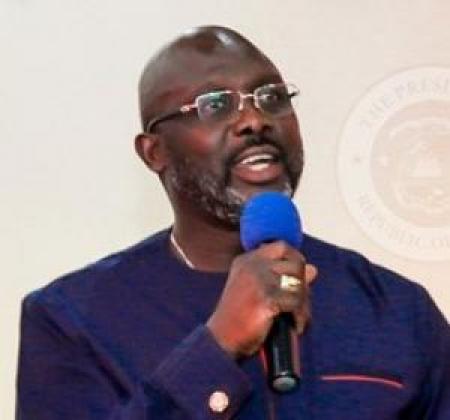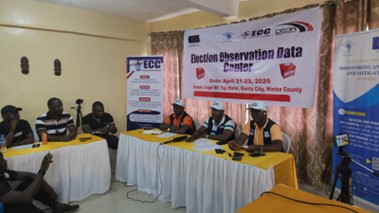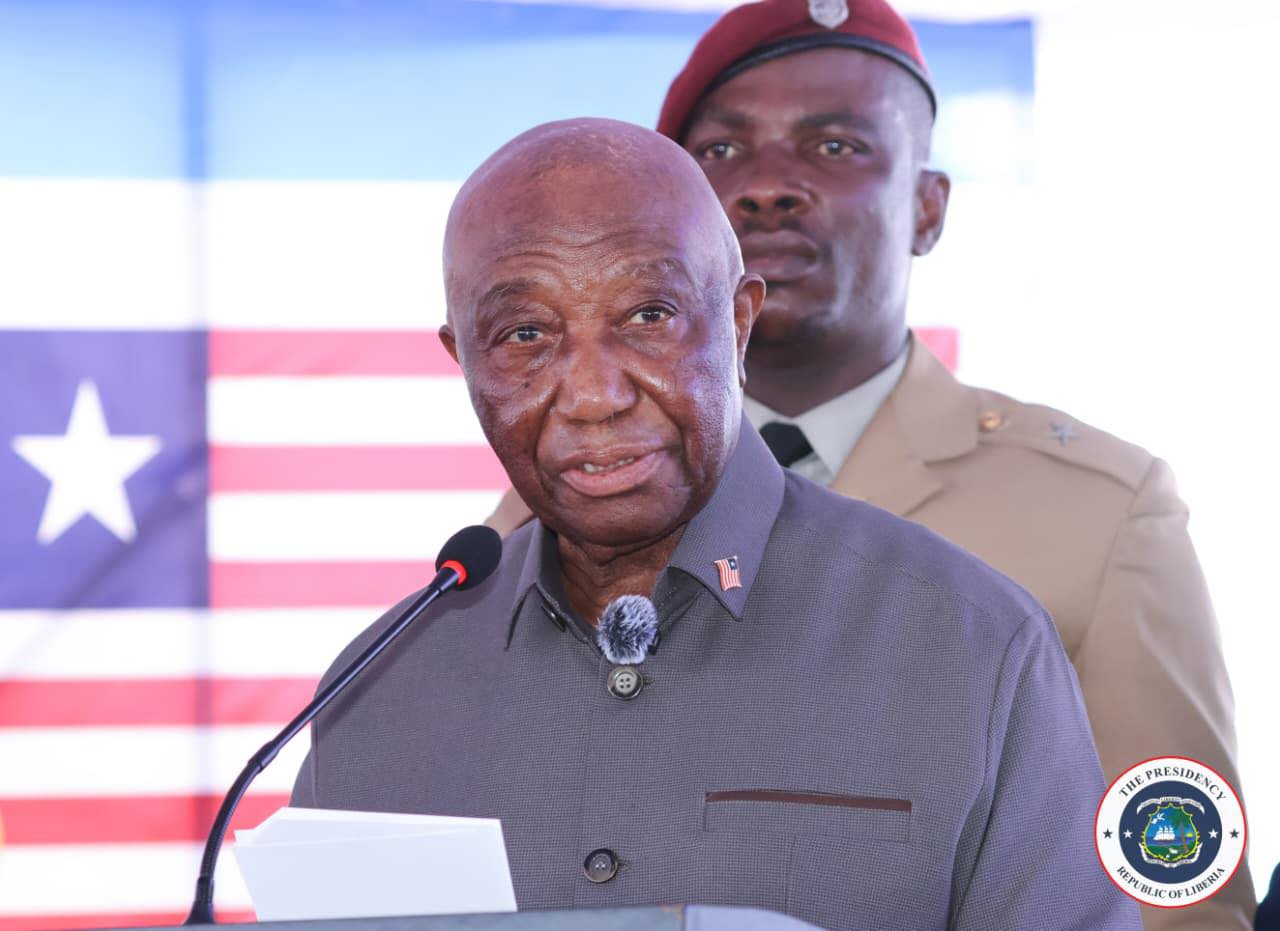An on-going signing of a resolution by legislative candidates in the October 10, 2023 elections is being led by former Representative, Rufus Neufville, pressing on the candidates to commit themselves to integrity and accountability if elected.
Ambassador Neufville is a legal professional and a representative candidate on the Collaborating Political Parties’ ticket in Montserrado County’s electoral district #8, going against Representative Acarus Moses Gray of the Coalition for Democratic Change.
In the resolution read by Neufville Thursday, August 10, 2023 in Monrovia, the candidates agreed that, if elected, they will vote for the reduction in the allowances of lawmakers by at least 20%.
The document disclosed that each lawmaker makes US$15,000 per month, adding that said amount covers general allowances, gas slips, vehicle repair, constituency office, communication (scratch cards), committee work and domestic travels.
The legislative candidates have further committed to reducing the allowances of cabinet ministers and heads of public corporations by at least 20%, noting that in cases where the enabling statutes protect their benefits they will proceed by reviewing those laws.
The resolution maintained that money generated from such exercise will subsidize schools and, hopefully, reduce tuition and fees.
The candidates, through Ambassador Neufville, said they want duty-free privilege for lawmakers, especially the two cars per year privilege cancelled, indicating that duty-free privileges are exemptions that allow some individuals or institutions to import goods into a country without paying customs duties and taxes.
He averred that it is crucial to reconsider the necessity and fairness of providing such privileges when Liberian lawmakers are among the highest paid officials in the ECOWAS sub-region, saying that this action will eliminate the potential for abuse and increase government’s revenue.
Still in the resolution, Rufus Neufville indicated that the current practice is that lawmakers receive new vehicles every three years, and a senator receives three cars during his/her term while a Representative receives two.
He said at the rate of US$45,000, taxpayers spend US$90,000 on each Representative and US$135,000 on each Senator for a term, noting that, in total, the country spends US$6,570,000 on the 73 Representatives and US$4,050,000 on the 30 Senators.
The tough-talking ex-legislator noted that the legal justification for this luxury is that the annual depreciation rate for government vehicles is 33%, adding that at this rate the cars are “officially” out of service after every three years.
“We pledge to review the relevant laws or policies that set the standard for the amortization or depreciation of government cars over six years, instead of three.
“Savings here will improve public transport, especially the National Transit Authority (NTA),” the resolution intoned.
According to the chief progenitor of the resolution, the estimate here is lower given that the Speaker, President Pro Tempore, and Heads of the Committees on Executive, Ways & Means, Foreign Affairs, Judiciary, and Rules & Order ride more expensive vehicles.
The candidates, independent and from various political parties, also pledged to debate the fiscal budget in open sessions and to vote against any appropriation of public funds to institutions owned by government officials.
“We shall seek the participation of scholars from the following institutions: The University of Liberia, Cuttington University, African Methodist Episcopal University, United Methodist University, AME Zion University, Stella Maris University, and other higher institutions of learning,” they maintained.
They averred that they would engage these institutions with the aim to utilize their scholarship and insights in addressing pressing national issues.
Ambassador Rufus Neufville added that the failure to report on money allocated to institutions obstructs the workings of the Legislature and prevents lawmakers from comparing actual, versus planned, expenditures over a given period.
Therefore, the candidates pledged to hold in contempt any official of the Executive Branch who will refuse to submit a budget performance report at the end of each fiscal period.
On District Development Funds, the resolution read, “The Budget is a law. After passage by the Legislature, the Executive must execute the law. The lawmakers abrogated the Constitution by allocating money to themselves for district development in the case of the US$30,000 in 2020, 2021, and 2022. This action violated the principle of separation of powers–the very foundation of our Republican form of government.”
Legal mind Neufville pledged, as per the resolution, that the District Development Funds will go directly to the communities through the Offices of Community Leaders and the Superintendents, Ministry of Internal Affairs.
Also touching on civil servants, Ambassador Rufus Neufville said, if elected, the candidates will vote against any additional benefits to government officials, noting that they will also vote that additional revenue generated benefit the civil servants and harmonization of the salary of public employees or civil servants constitute legislative contempt.
“Article 44 of the Constitution of the Republic of Liberia gives lawmakers the power to hold public officials in contempt,” he stated.
Giving the background of the resolution, Ambassador Neufville said they are mindful of the fact that the unfair distribution of resources in Liberia has been the main reason for disunity and conflict.
He said all candidates are also aware that Article 36 of the Constitution grants the authority to the senators and representatives to set remuneration or pay for their services.
According to him, they realize that “the majority in the Senate and House of Representatives have used the budget process to allocate public funds to themselves at the detriment of the people”.
The Montserrado County electoral district #8 representative candidate further intimated that the candidates’ signatories to the resolution say they understand that the trust of the Liberian people in their lawmakers is low due to greed and unfulfilled campaign promises.







